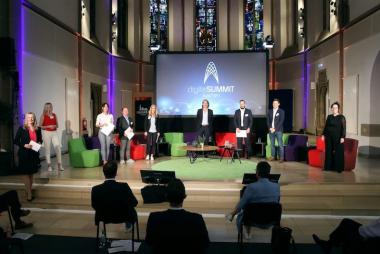EURATEX Statement on the EU-US Summit
The European textile and apparel industry welcomes the organisation of the EU-US Summit in Brussels, and hopes that political leaders will launch a new era of closer cooperation across the Atlantic. Both the Covid19 pandemic and recent geopolitical tensions call for global solutions; the EU and the US should take a leadership role in developing that new global framework.
EU-US trade in textiles and apparel have dropped by nearly 20% in 2020 (just under €6 bln), while imports from other countries, in particular China, have increased spectacularly (+45% into the EU). At the same time, global supply chains came under pressure, and access to certain raw materials for the industry became difficult and costly.
Against this background, EURATEX does not call for protectionism, but a better functioning of global supply chains, with common rules which are applied by all. The EU and US authorities should put their full influence to establish a level playing field for our industry across the globe, promoting environmental and social standards. Sustainable and circular textiles should become the norm, thus contributing to a greener planet and creating high quality jobs.
At bilateral level, the EU and US should resume their work on mutual recognition of standards and certification procedures, thus saving considerable costs for our companies while maintaining the highest safety standards. Custom procedures can be simplified on both sides, and joint research, e.g. in smart textiles, should be promoted.
EURATEX welcomes the recent progress in provisionally eliminating additional duties on several American and European products due to the Airbus-Boeing trade dispute. It is a very positive sign that EURATEX would like to highlight in a particularly difficult context for the textile and clothing industry at European, American and even global levels. EURATEX calls on both US and EU institutions to eliminate such duties permanently and build on a common positive agenda for the benefit of EU and US companies and consumers.
EURATEX Director General Dirk Vantyghem commented: "Both the EU and US are developing a new business model for their industry. We should make sure these models can complement and reinforce each other. If not, we risk losing global leadership, not just in terms of market share but also in terms of values and standards."
EURATEX
































